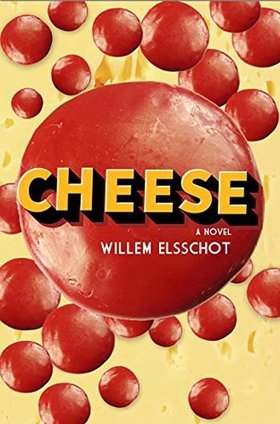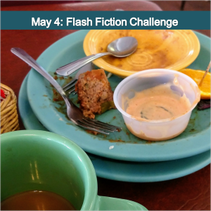| Frans Laarmans, a lowly clerk at an Antwerp shipyard in the 1930s is offered, by a wealthy friend of his brother’s, the opportunity to establish himself as a cheese merchant, dealing in full fat Edam from Amsterdam. Despite his distaste for even the word cheese, and his lack of business acumen, he jumps at the challenge. Immediately, the worthies at his patron’s weekly salon treat him more respectfully although his wife, to whom he is somewhat condescending, queries terms of the densely written contract. But soon Frans is busy choosing a name for his company, installing a telephone, buying headed stationery and sourcing a suitable desk – anything, it seems, to avoid getting to grips with the mechanics of selling cheese. |
The Cheese Counter
I like cheese. I like it a lot, but I don’t like a lot of it, so I tend to buy it in small quantities. As personal problems go, it’s not going bankrupt or living with a disability, but it’s not easy to purchase a piece of cheese for someone like me. You can buy cheese that’s white, cream, yellow, orange or streaked with blue; you can buy it wrapped in rind, wax or silver foil; you can buy it brick-hard or almost liquid; you can buy it smoked or spiced or sweetened with fruit; but ask, as I often do, for a small piece of Stilton weighing around a hundred grams and you’re the vegetarian at the hog roast.
I approach cautiously and pluck a numbered ticket from the dispenser. Beneath the glass of the display cabinet, giant blocks of cheese are adorned with flags announcing their names and cost per kilogram. Behind them, women dressed in white overalls and mop caps attend to the implements of their trade. On my side of the counter, people in outdoor coats with wire baskets on their arms or leaning against wobbly-wheeled trolleys contemplate the relative merits of Cheshire and Lancashire. I eye up the competition, reassuring myself there’s no chance they’ll run out of cheese.
The counting device above the display cabinet flicks over till the digits match those on the ticket in my hand. I step forward, waving it like a winning lottery ticket. In response to my request for a small piece of Stilton, the assistant selects a wedge and hefts it to a table at the back. I watch her slide a wire through the block to cut a slice. Holding it by a film wrapper, she turns to me. “That okay?”
I’m not well practised in judging portion size at a distance further than the couch to the TV. I ask her to weigh it. Looking as if I’ve asked her to milk the cow herself, she places the cheese on the scales and reads out the price. Fortunately, I’m close enough to read off the weight which is just short of double what I’ve asked for. In the tone I’d use if I’d inadvertently left the shop without paying, I ask if she wouldn’t mind cutting me a smaller piece.
With a sigh, she heaves a fresh wheel of cheese from the cabinet, still tightly wrapped in industrial-strength clingfilm. I can hardly bear to witness the excruciating labour as she dissects it, eventually placing the slimmest slice imaginable on the scales. Even before she reels off the price, I know it’s too small. My cheeks redden as I sense the disapproval of the customers awaiting their turn.
Despising myself and my lack of backbone, I nod. She packs the Stilton in a bag that weighs almost as much as the cheese itself. Taking it from her, I smile, and place it in my basket.
| Does cheese qualify as a comfort food? Because that’s the topic of this week’s flash fiction challenge. I guess cake would be more popular, so that’s where I’ve gone with my contribution, although it might not be as comforting as we’d hope. |
From dreams of chocolate cake and gingerbread she tiptoed downstairs. She conjured slender sleek-haired schoolgirls as she beat sugar into eggs. While it cooked, she sipped from her water glass and jogged on the spot. Once done, she snapped the cake for Instagram before scraping it into the trash.
Her mother, hair wet from the shower, cheeks wet from tears. “It’s an illness, darling. You can’t go on like this.”
She should’ve waited till she’d left for work. She should’ve thought about the smell. But baking cakes was her only comfort. Eating them her only fear.























 RSS Feed
RSS Feed





















